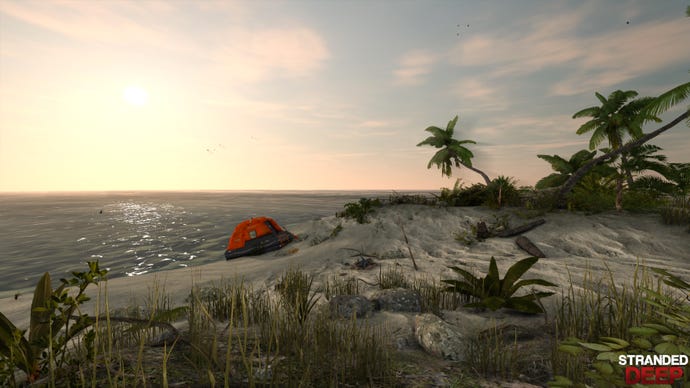USgamer Community Question: What was the Last Game to Truly Amaze you?
There have been plenty of seriously impressive games over the years. But what was the last one that truly amazed you?
This article first appeared on USgamer, a partner publication of VG247. Some content, such as this article, has been migrated to VG247 for posterity after USgamer's closure - but it has not been edited or further vetted by the VG247 team.
When was the last time you stared at a game in wonder? What was it that impressed you? That's what this week's question is all about as we ask you what was the last game to truly amaze you?
While you consider your answer, here are the last games to seriously impress the USgamer staff:
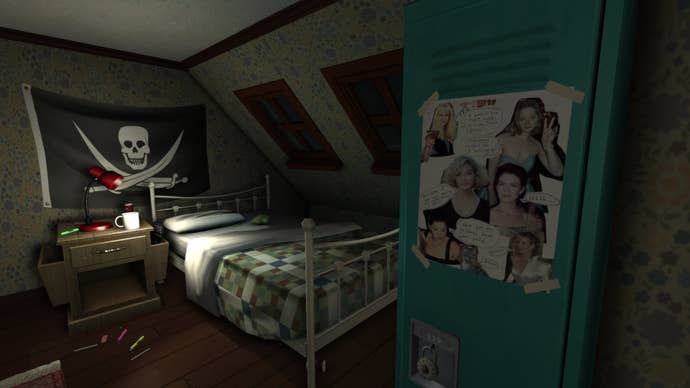
Bob Mackey, Senior Writer
When I think of games that amaze merely than entertain, they're the ones I normally can't shut up about until everyone in my circle of friends gives them a try. And while my choice for this week's piece may be a little obvious, I really can't think of any other game that's captivated my mind and stirred my emotions so much since its release. Of course, I'm talking about the slightly polarizing 2013 "walking simulator," Gone Home.
In all fairness, the circumstances surrounding my playthrough of Gone Home may have accentuated my experience just a bit: I started the game on a rainy, windy evening (one of the handful we get in my neck of the woods), with my bedroom window open just a few inches, and, if also you factor in my noise-cancelling headphones, it's easy to see how I could get so wrapped up in Fullbright's creation. Gone Home's central premise—returning from a trip abroad to your family's new house to find them all mysteriously missing—provides a gripping mystery that makes every unexplored corner and unexamined object absolutely tantalizing, and the setting's dark and stormy night had me cringing at thunderclaps and scrambling to hit every light switch as fast as I could.
If Gone Home sold itself only on mystery and atmosphere, it would still be a hell of a game, but the intimate, intensely emotional story it tells is what makes the experience special. Sure enough, Gone Home's finale caused a lot of players to say "That's it?" after being conditioned to expect the typical video game twist at the end. Really, though, that's why I love it so much: Fullbright had the guts to commit to this small, personal story, leaving the standard video game tropes behind. (No, you weren't really dead all along.) Most importantly, Gone Home's story of painfully earnest teenage love strikes was so resonant, some parts couldn't help but make me cringe—it wasn't long ago when every emotion was at its most intense, and every event was undeniably life-changing. Fullbright definitely captured these turbulent years with a sense of authenticity so many other attempts lack.
Since Gone Home's release, I've become a huge fan of walking simulators, because they really strike me as the next big thing for narrative in games. Instead of sitting through another attempt to ape Hollywood blockbusters, I'd much rather be dropped into a world and allowed to run free, absorbing the story at my own rate. To date, Gone Home has been the most creatively successful, and I'm really hoping another game from the genre will one day move me like it did a few years ago.
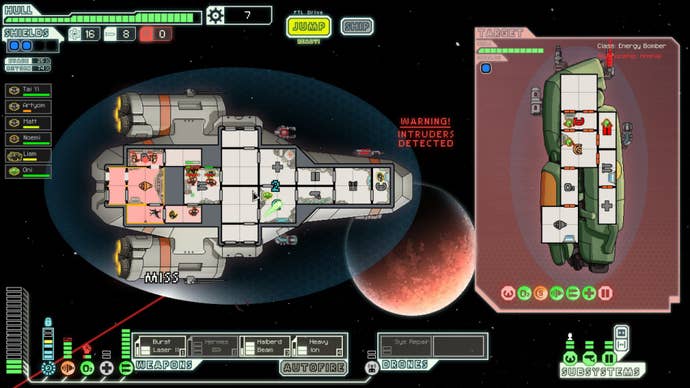
Mike Williams, Associate Editor
Amazement is a strong word. I've played a number of great games of the past few years: Cities Skylines, Dungeon of the Endless, Endless Legend, Forza Horizon 2, Guilty Gear Xrd, Mario Kart 8, Dragon Age: Inquisition, Bayonetta 2. The list rolls on and on. But amazement is a unique feeling, that sense of wonder and exploration, the idea that you're playing something new and unique. Something that connects with you on a personal level.
I guess I'd have to go with FTL: Faster Than Light. This Kickstarter roguelike seeks to mirror the experience you would have as the captain of a starship. There's been games that have tried it before, but FTL is the first one to capture that feeling for me. Selecting your ship and crew, upgrading for the long journey, heading into the unknown and adapting to new situations; FTL was just such a unique experience for me as a scifi fan. The developer, Subset Games, found the perfect balance between simplicity and complexity, there's a ton of options, but not enough to make you overwhelmed.
I remember playing it on a whim for the first time: I was halfway through my adventure when I was attacked by a pirate. They boarded my ship, killing most of my crew. I defeated them by locking my last crew members in one part of the ship and opening the rest of it to the atmosphere. I can't even imagine another game where that's an option. I won the day, but the final crew members wasn't built to repair the ship, so it was a slow slide towards death.
Around half of playing FTL is luck, but that's what makes it so much fun. You have to roll with the random punches and as you improve the game gets more complex and more fun. When I got my iPad, the first app I downloaded was FTL: Advanced Edition. There's nothing else out there like it and it's the last game to truly amaze me.
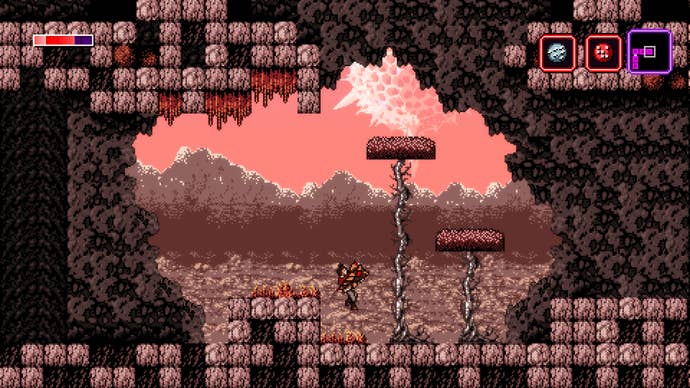
Jeremy Parish, Editor-in-Chief
I've had think about this a good long while, because I don't want to come off like a cynical putz. Not to get all Bill Clinton with my needless hair-splitting of obvious words, but it all comes down to what your definition of the word "amaze" is. I accept that I'm never going to have an awe-inspiring experience like I did with, say, beating Metroid or seeing Super Mario 64 or watching Final Fantasy VII's camera cross-cut to a train as it zoomed into Midgar, cutting through the futuristic city structure to focus in on that very same train. I'm older, games are more established, the frontiers have been pushed. So it goes.
So maybe I'd have to say the last game that really surprised me was Axiom Verge — simply because I didn't realize at this point I could be surprised. It captured something I thought had evaporated with time and experience: The sense of mystery and uncertainty I experienced when I first played new kinds of games in the NES days. The late '80s saw an explosion of genres being tested and defined, and every cart I plugged into my console stood a pretty good chance of being something I'd never seen before — of offering me a totally fresh and unprecedented experience. That's not possible at this point in gaming, not when conceptual grounds are so thoroughly staked out, but Axiom Verge tears down the metroidvania style of games to its roots and builds it back up again in an intriguingly different way. Even when I could spot places I'd need to revisit, I never knew exactly how I'd be going about it. It was refreshing to experience a style of game I've devoted god-knows-how-many hours to over the past three decades and always find myself guessing about how it was going to play out.
Not to get too far into the weeds here, but this recent technical discussion of simulating CRT artifacts in modern games in the age of flatpanels screens reminded me of how evocative old games could be. Part of it was the newness, and part of it was the technical imprecision. I look at this comparison of Metroid…
….and yeah, the left image is crisp and clean and artful. But the right one reminds me that there was an ethereal mystery to games in the lo-fi days — playing 8-bit software on a little cathode TV through an RF adapter created this distorted imprecision that felt a little like playing a game was peering through some sort of unstable window into another world. That's another thing Axiom Verge nailed, making deliberate use of glitch and visual artifact effects to create a reminder of bygone experiences. Anyway, it hit me pretty hard.
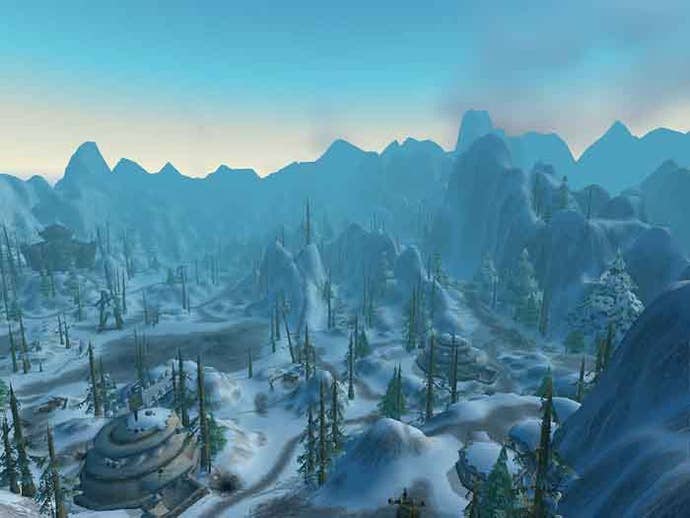
Jaz Rignall, Editor-at-Large
My first thought goes to Grand Theft Auto V on the PC. Man, is that one stunning piece of software. Driving around in that game really blows my mind. Just the sheer volume of detailing, and the amount of work it must have taken to build every brick, blade of grass, the people… Absolutely stunning.
It's a remarkable technical achievement and one of the most amazing games ever created. So why is this sentence going somewhere that sounds like it'll end in a "But…"?
Well, that's because the last game to truly amaze me was World of Warcraft a couple of nights ago. I play a lot of PvP, and one of my favorite aspects of the game is Alterac Valley, a 40 versus 40 battleground where factions fight across a huge, oblong-shaped map with a variety of objectives dotted along its length. It's nothing new - it's been around for almost ten years now and I tend to take it for granted, but the other night I was in a game that really went off. Usually, both factions race to the enemy's boss as quickly as possible, take down the towers in their opponent's base to weaken him, and then take him out. It's a simple routine that gets repeated hundreds of times a day by Horde and Alliance players.
However, the other night, a small team dropped back and successfully defended the Alliance base, forcing the horde back to their starting point, which was then put under siege by the Alliance for the remainder of the game. What really amazed me was that there was basically around 80 characters fighting back and forth, and it was absolute mayhem. I just had a moment where I stepped back from healing to regain some mana, and watched at everything that was going on. People were chasing each other around, melee characters were charging into the fray, ranged characters were dropping all the AoE bombs at their disposal, and of course the healers were going crazy trying to keep everybody alive. It was a magical warzone, and it looked incredible.
Sure, there are other PvP games that have similar large-scale combat, but few can support that kind of intensity, and with the kind of effects that World of Warcraft features. Plus, the fact that Alterac Valley is still as impressive as it is ten years after it first appeared is amazing in of itself.
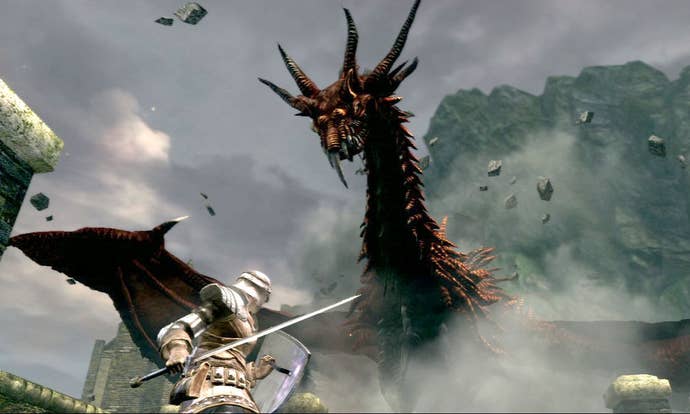
Kat Bailey, Senior Editor
I think the last game that has truly amazed me is Dark Souls. Outside of maybe Call of Duty 4, I can't think of another game from the previous generation that has so radically altered my understanding of the action genre. Frustrating as it can be, its design is ahead of the curve in so many ways, and other action games are only just now starting to catch up.
Granted, much of its design was pioneered by Demon's Souls, but Dark Souls took those ideas and sharpened them. It streamlined and smoothed out the already excellent combat, introducing a number of boss encounters that have since become iconic. And it used online in ways that people had never considered, seamlessly encouraging players to work together (or fight each other) without disrupting the delicate balance of the atmosphere. Its open world was also masterfully designed, effectively taking Demon's Souls' concepts to the next level.
I reviewed Dark Souls for GamePro back in the day, and I was legitimately blown away by its creativity and craftmanship. It wasn't as polished as Gears of War 3, which came out around the same time, but it shined in other ways. Its shine has dulled a bit, not the least because it's been continually held up as the ideal of "how games should be," but it still commands a loyal audience.
There have been plenty of games since, many of which I've liked very much, but I can't think of many that have impressed me as much as Dark Souls. Much like Call of Duty 4 for multiplayer shooters, Dark Souls was a watershed for action games in many respects. Its sort doesn't come along very often, and we certainly haven't seen anything as impactful this generation. Hopefully that will change soon.
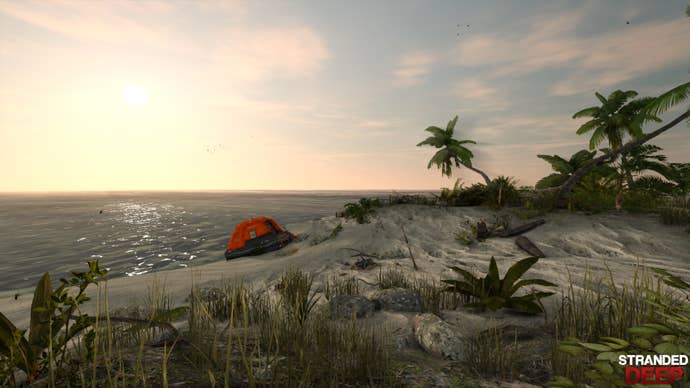
Samantha Leichtamer, Community Curator
The last game that completely took me in was Stranded Deep. It's a first-person survival game available for Early Access on Steam, and it’s more broken than Tom’s heart at the end of 500 Days of Summer — but I love it anyway. For what it’s lacking mechanically (a whale, straight up, got stuck swimming through the center of my island,) it makes up for in experience. The game begins on a private plane. After a cocktail, the plane crashes into the ocean and you are the sole survivor, awaking on a life raft, surrounded by uninhabited islands.
Making the most of the resources at your disposal is essential to survival. There are some really interesting ways to craft, and an endless number of islands and shipwrecks to explore. The longer you play, the more you understand Tom Hanks in Castaway and begin to long for a Wilson of your own. Even though that whale thoroughly destroyed the hut I built, by glitching out and getting beached, I was just happy to have a friend, (or pet-- if you will.) It’s been a long time since a game with such a simple concept has evoked so much emotion in me, and this one isn’t even finished yet. For that, I give it props.
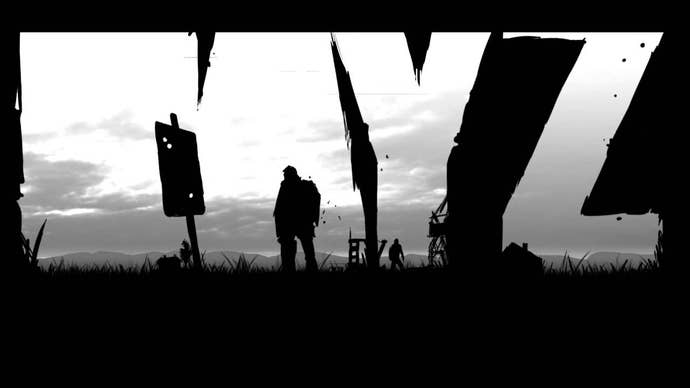
Bill Lavoy, Guides Guru
Jaz definitely scooped up my game when he managed to explain why Grand Theft Auto V amazes him. There’s not much else I can add to that, except that one of my favorite things to tell people is how Rockstar managed to do vehicle customization, driving, and physics better (in my opinion) than The Crew, a game that is focused entirely on vehicles. I’m not really sure what that says about The Crew, but it’s a feather in the cap for Grand Theft Auto V. Although a huge part of the experience, vehicles are only one aspect of everything that San Andreas has to offer its visitors
I’m going to move down the line to DayZ, a game that is still technically in development, and is seriously flawed on many levels. For some that might be a reason not to include it, but the fact that it amazes me, yet can still make me want to throw my keyboard off my balcony, is all the more reason it should be mentioned. If it’s this good now, how incredible will it be once all of the bugs have been squashed?
There are too many things that amaze me about DayZ to list here, but for starters I’ll mention that the map is 225 square kilometers. You could run for 20 minutes straight and never hit one of the edges. In fact, now that I think about it, I don’t believe I’ve ever come close.
Scattered across the open-world of Chernarus is all the adventure that any DayZ player could hope to find. There are full-sized cities, small towns, abandoned prisons, mountains, caves, lakes, military bases, camp grounds, and the opportunity to play the game in whatever manner you feel most entertaining.
What this all adds up to is knowing that you’re never going to have the same adventure twice. One session might be heavy on the PvP, but the next could see you take a relaxing journey from Elektro to Severograd, hunting wild animals and living off the land. You can even eat other people, if you’re into that sort of thing.
I was a bit unsure if I truly believed in my DayZ pick at first, but the more time I think about it, the more I realize it’s justified. Just sitting here pondering makes me want to go play it. It’s the perfect game if you’re into massive, open-world survival horror experiences.
